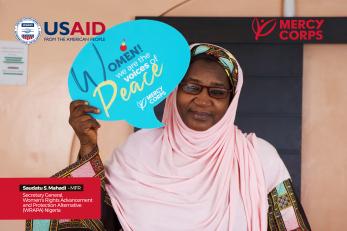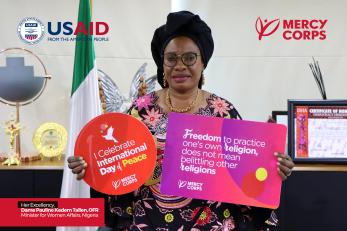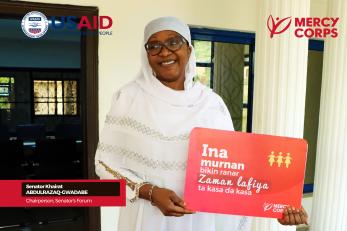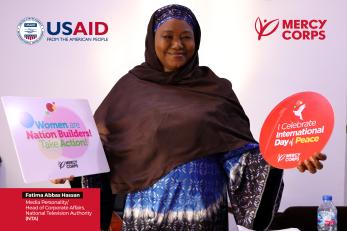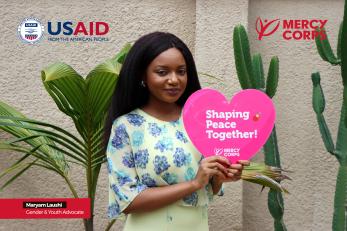Amplifying the voices of women in peacebuilding
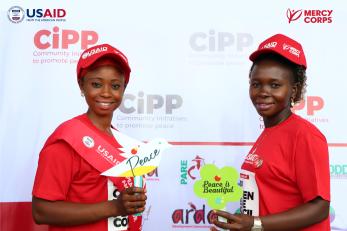
The year 2020 marks the 20th anniversary of the landmark United Nations Security Council Resolution (UNSCR) 1325 on Women, Peace and Security, which established a standardized framework to promote a transformative approach to gender peace and security. The resolution recognized that women and girls are disproportionately affected by violent conflict and affirmed that peace and security efforts are more sustainable when women are equal partners in building more effective and inclusive mechanisms for addressing the drivers of conflict and forging of lasting peace.
According to UN Women Nigeria, although two National Action Plans have so far been developed for the implementation of UNSCR 1325 and related resolutions on Women, Peace and Security between 2013 and 2020, progress on fulfilling Resolution 1325 has been slow especially considering that only 11 out of 36 states have domesticated the plan and, challenges of poor monitoring mechanisms persists.
The Nigerian Bureau of Statistics estimated Nigeria’s internally displaced persons at 2.2 million with over 50% of that number being women and children facing increased poverty and food insecurity. This is in addition to insufficient opportunities for women to participate in peacebuilding processes where women and girls have been the worst affected - killed, raped or rendered homeless during violent conflicts.
As witnessed over the years, conflicts have been on the rise in Nigeria’s North Central region; with devastating consequences on development, democracy, security, economy, human life and climate to mention a few. More than ever, the inclusion of women in peace and security processes has become imperative to sustainably address unabated violent conflict attributed to increased polarization and segregation amongst religious groups (Christain and Muslims) and ethnic groups.
Since 2019, through the USAID funded Community Initiatives to Promote Peace (CIPP) program, Mercy Corps has been working alongside African Radio Drama Association (ARDA), Interfaith Mediation Centre (IMC), Pastoral Resolve (PARE), and Savannah Centre for Diplomacy, Democracy & Development (SCDDD), to facilitate conditions necessary for building a sustainable peace and represent a force for peace. CIPP is designed to elevate women’s role and ensure their needs, voices and perspectives to address farmer-herder, and interreligious conflict and violent extremism in the North Central and North West are represented.
Each year, the International Day of Peace is observed around the world on September 21. The United Nations General Assembly has declared this as a day devoted to strengthening the ideals of peace, both within and among all nations and peoples. This year’s theme, Shaping Peace Together, honors the spirit of inclusion, non-discrimination and acceptance as a global initiative that promotes respect, safety and dignity for everyone.
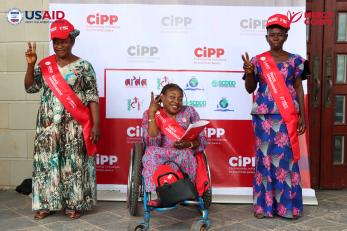
On this year's International Day of Peace, Mercy Corps, in collaboration with the Benue State Government, Ministry of Women Affairs and Social Development, inaugurated the Women Peacebuilding Council. The Women Peacebuilding Council is a platform that brings together 60 women of influence from various religious backgrounds and communities in Agatu, Buruku, Guma and Makurdi Local Government Areas to champion peace, development and stability in their communities.
The aim of this council is to create and expand platforms for grassroots women to meaningfully address triggers of violence, gender inequities and discrimination. It will enable women to be at the center of creating and supporting sustainable peace, and be part of decision-making and peacebuilding processes at the community, LGA and state levels.
In a bid to highlight the role of women in peacebuilding, Mercy Corps engaged several national influencers and leaders who play critical roles in peacebuilding in their communities through a visibility campaign. They shared messages on the importance of women being involved in peacebuilding and decision-making in this inspiring video.
